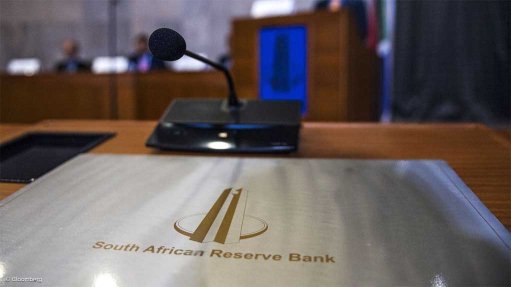Kenya’s election heralds a change in leadership
When a UK politician known equally for her religion as for her politics said of her own party leader that “there’s something of the night about him”, it stuck. The same could be said of William Samoei arap Ruto, whose election as Kenya’s President was confirmed by the country’s Independent Electoral and Boundaries Commission on August 15.
The results that the commission settled upon – because settling on a result has become the norm in recent Kenyan elections, as they are invariably disputed, including by over half the commission’s members – show that the victory was a narrow one at 50% to 48% and the country is divided by a Ruto leadership.
Ruto, 55, learned his politics at the feet of the late Daniel arap Moi, the kleptocratic dictator-President who served from 1978 to 2002. As head of the youth wing of Moi’s then ruling party, the Kenya African National Union, he gained a reputation as something of an enforcer. Fast forward to the 2007 elections, when – after polls had closed – the main politicians unleashed a wave of violence to influence the results. That politically orchestrated violence killed 1 500 Kenyans, while a further 350 000 were internally displaced. The economy went into shock and lost 7% of its gross domestic product as tourism just stopped.
The knock-on effect on Kenya’s neighbours was immediate, too, as arterial routes to Uganda, Rwanda and the eastern part of the Democratic Republic of Congo were blocked, causing shortages of essential goods and an uptick in inflation. For their part in orchestrating the violence, the outgoing President, Uhuru Kenyatta, and Ruto were referred to the International Criminal Court (ICC). The case against Ruto was eventually terminated, but Ruto was not acquitted. The ICC’s explainer as to why the judges did not acquit is telling: “There was evidence which suggested that witnesses had been interfered with and because there had been political interference in a manner that was likely to have intimidated witnesses, the case should be declared a mistrial, leaving by that the possibility for a future prosecution afresh.”
The domestic and international business community is wary of a Ruto Presidency. Such is the fear he inspires that, in discussing him, businessespeople speak in hushed tones without mentioning his name outright – as if every restaurant’s central flowerpot were bugged! One recently went so far as to say Ruto made the hairs on the back of his neck stand on end.
While in these elections Ruto presented himself to Kenya’s youthful voters as ‘a hustler’, the rags-to-riches story, the guy who made it from selling groundnuts at the side of the road, to Vice-President, and then to Presidential candidate, business leaders speak of Ruto’s ruthlessness in extracting corrupt rents from Kenya’s businesses. He has played a central role in the political elite’s legendary corruption and avarice. According to the Nation newspaper, Ruto has accumulated 18 520 acres of land in three counties – much of it controversially – five helicopters, two hotels, three private residences, a gas company and a poultry farm. Privately, businesspeople mutter about more – the holdings that are likely to be hidden behind nominees in the murky offshore world. Violence, assassination, landgrab and corruption litter every profile written about Ruto.
What’s already known about Ruto is little comfort to international diplomats or businesspeople, and they ask themselves: How will he be as President? Other questions arise too, notably how he will consolidate his political power base – and for how long. His ambition is well known but will he, like the outgoing President, conspire to alter the Constitution to remain in power like Yoweri Museveni in neighbouring Uganda?
If there are any positives to draw from this result, it is that Ruto is known as a grafter. Unlike the outgoing President, Ruto does not drink alcohol. His day reportedly begins at 5:00 with his focus on the main job – winning power. He keeps fit. A graduate of the University of Nairobi, he took his studies further while in office and was awarded a doctorate in 2018. During his election campaign, he sought to allay business fears – and reportedly gave what one business leader called “a very good account of himself” when he addressed the business community a few months ago. He reportedly presented his case well and far better than his ageing Presidential opponent, Raila Odinga.
Kenya will definitely need a grafter. Acceding to the Presidency now is to win something of a poisoned chalice. The outgoing President may be remembered in the business community as being friendly and as having improved infrastructure. However, above all, he saddled the country with huge debts. Add to the debt a post-Covid economic shock, drought and, since February, the effects of Russia’s illegal invasion of Ukraine and the extent of the problem is clear. All this will limit Ruto’s fiscal ability to have much impact. Charismatic, as most populists are, Ruto has won over the youth with promises to support the youth and small and microbusinesses. But the reality is a high cost of living (6%) with prices of petrol and food – most notably the staple maize flour, which has tripled – all increasing sharply.
Another positive is that this election took place as Kenya’s 2010 Constitution starts to take hold. The new Constitution – which Ruto opposed – has greatly reduced the power of the Presidency, devolving it to Parliament and county governors. The new Supreme Court has shown its teeth by kicking out Kenyatta’s attempt to alter the Constitution to extend his term in office. Will Ruto try it? Almost certainly. Leopards can’t change their spots.
Article Enquiry
Email Article
Save Article
Feedback
To advertise email advertising@creamermedia.co.za or click here
Press Office
Announcements
What's On
Subscribe to improve your user experience...
Option 1 (equivalent of R125 a month):
Receive a weekly copy of Creamer Media's Engineering News & Mining Weekly magazine
(print copy for those in South Africa and e-magazine for those outside of South Africa)
Receive daily email newsletters
Access to full search results
Access archive of magazine back copies
Access to Projects in Progress
Access to ONE Research Report of your choice in PDF format
Option 2 (equivalent of R375 a month):
All benefits from Option 1
PLUS
Access to Creamer Media's Research Channel Africa for ALL Research Reports, in PDF format, on various industrial and mining sectors
including Electricity; Water; Energy Transition; Hydrogen; Roads, Rail and Ports; Coal; Gold; Platinum; Battery Metals; etc.
Already a subscriber?
Forgotten your password?
Receive weekly copy of Creamer Media's Engineering News & Mining Weekly magazine (print copy for those in South Africa and e-magazine for those outside of South Africa)
➕
Recieve daily email newsletters
➕
Access to full search results
➕
Access archive of magazine back copies
➕
Access to Projects in Progress
➕
Access to ONE Research Report of your choice in PDF format
RESEARCH CHANNEL AFRICA
R4500 (equivalent of R375 a month)
SUBSCRIBEAll benefits from Option 1
➕
Access to Creamer Media's Research Channel Africa for ALL Research Reports on various industrial and mining sectors, in PDF format, including on:
Electricity
➕
Water
➕
Energy Transition
➕
Hydrogen
➕
Roads, Rail and Ports
➕
Coal
➕
Gold
➕
Platinum
➕
Battery Metals
➕
etc.
Receive all benefits from Option 1 or Option 2 delivered to numerous people at your company
➕
Multiple User names and Passwords for simultaneous log-ins
➕
Intranet integration access to all in your organisation


















